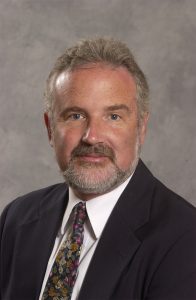
TUSCALOOSA, Ala. – A psychology researcher who is advocating for changes to the American Psychology Association’s diagnostic manual will discuss the ongoing debate over how to diagnose and treat people with mental disorders during the annual Dinoff Memorial Lecture, Friday, March 31, at The University of Alabama.
Dr. Leslie Morey, the George T. and Gladys H. Abell professor of psychology at Texas A&M University, is a recognized expert in psychodiagnostic assessment and psychiatric classification. Morey was appointed by the American Psychiatric Association to the Diagnostic and Statistical Manual of Mental Disorder-5 Work Group for Personality and Personality Disorders, which recently proposed a radical change to the official definition of personality disorder that had been in use for 35 years.
The work group determined that the latest edition of the manual should reflect a growing consensus that mental disorder is not comprised of “disease categories,” but of emotional and behavioral phenomena distributed along dimensional continua and broad spectrums. Acceptance of the drastic shift in the proposed model wasn’t unanimous across the discipline, and it clashed with decades-old concepts physicians rely on across multiple fields of medicine, Morey said.
“We tried to formulate those to show how traditional diagnoses exist in this model and how to combine elements of the model to reconstruct these categories that existed,” Morey said. “And though we didn’t have unanimous support, surveys showed three quarters of researchers in the field agreed that substantial changes needed to be made.
“[Not adopting the changes] is going to inhibit the field’s ability to get sophisticated understanding of where these phenomena come from and how to intervene. There are many implications for clinical practice as well.”
Morey will detail the rejection of the work group’s recommendations by the American Psychology Association’s board and the resulting implications for practice at 6 p.m. in room 118 of Bibb Graves Hall. The event is free and open to the public.
Historically, mental disorders have been characterized by medicine, which has influenced the traditional medical model of “identify a syndrome, prescribe a pill for it,” Morey said. He referenced the 19th-century discovery that syphilis caused many asylum cases of paresis of the insane as the first major breakthrough in the study of mental disorders.
“So here were a bunch of symptoms people thought were the result of character failing, but they discovered a germ caused it, a bacteria from syphilis,” he said. “That was a crowning achievement for psychiatry, but nothing else has worked out that way.
“When it comes to personality, there’s no magic line denoting where problems occur. In many ways, that continuum of problems reflects an extension of something that falls across the full spectrum of humanity. That different way of conceptualizing personality can lead to clashes between physicians and psychologists.”
Morey said the flaws in the manual are rooted in the categorical rules provided for each disorder. Often, patients who meet criteria for one personality disorder will meet criteria for several other such disorders.
“There’s some sort of shared mechanism that isn’t recognized in the current system,” Morey said. “If a clinician has a patient with five personality disorder diagnoses and consults a textbook on treating disorders, that clinician should be reading five different chapters to get a read on the patient, but all five chapters say different things. Until we can understand why are people getting multiple diagnoses and what the shared characteristics are, I don’t think we’ll be able to resolve that.”
The Dinoff Memorial Lecture is given in memory of Dr. Michael Dinoff who was a professor and director of the University’s Psychological Clinic from 1963 until his death in 1982. He achieved rapid promotions through the professorial ranks based on a high level of research productivity, outstanding teaching, administrative skills and contributions to the University and to his profession.
The Dinoff Lecture is possible through a memorial fund established by the Dinoff family and friends. For the lecture, which typically occurs in the spring near Dinoff’s birthday, the psychology department invites an outstanding psychologist whose work reflects the standards of Dinoff.
Contact
David Miller, UA Media Relations, 205/348-0825, david.c.miller@ua.edu
Source
Dr. Les Morey, professor, psychology, Texas A&M University, 979/845-2575, morey@tamu.edu
